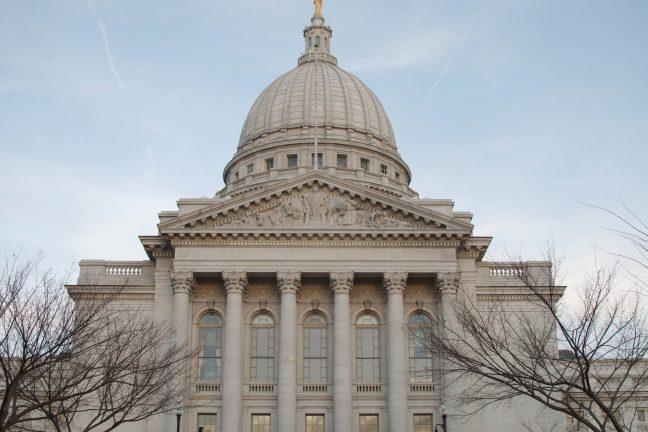Wednesday, Marquette Law School released a poll of Wisconsin voters which found several Democratic candidates leading over President Donald Trump in the 2020 election. The poll included head-to-head matchups between Trump and several different nominees.
According to the poll, former Vice President Joe Biden led Trump 51% to 42%. Of the remaining percentage, 4% said they likely wouldn’t support either candidate while 2% said they weren’t sure.
In an email to The Badger Herald, political science professor Barry Burden said Biden may be a more appealing candidate to Wisconsin voters because he’s a well known candidate.
“Among Democratic primary voters in Wisconsin, it appears to be a three-way contest with Joe Biden in the lead,” Burden said. “This is to be expected because Biden, as a former vice president and presidential candidate, is much better known.”
Between Sen. Bernie Sanders and Trump, Sanders led 48% to 44%. Five percent supported neither and again, 2% didn’t know.
The poll tied even between Sen. Elizabeth Warren and Trump, with each candidate receiving 45% of the vote, 5% supporting neither and 5% unsure. Similarly, Sen. Kamala Harris and Trump tied when matched, with each receiving 44% of the poll and 6% supporting neither, the final 6% unsure.
Burden said caucuses in other states like New Hampshire and Ohio may winnow the field of Democratic candidates before Wisconsin even votes.
The poll discussed presidential approval rating among Wisconsin voters. Forty-five percent of respondents approved of Trump, while 53% disapproved. Specifically, the poll asked about the impact economic tariffs can have on the economy — in response to the recent economic tariffs Trump has placed on China — and while 30% said tariffs benefit the economy, 46% said tariffs harm the economy. Seventeen percent didn’t believe they made a difference.
Burden said Trump’s unique election situation affected his approval rating.
“Trump was in a precarious position from the outset of his presidency,” Burden’s statement said. “Although he won the popular vote in Wisconsin, he lost the popular vote nationwide and did not get much of a ‘honeymoon’ during his first few weeks in office. His approval ratings nationally have been below nearly all recent presidents at this point in their terms, despite presiding over a good economy.”
The poll also asked about Gov. Tony Evers’ approval rating; 54% approve of Evers, while 34% disapprove. Ten percent had no opinion. The poll found the Wisconsin Legislature’s approval rating to be 52%, with 38% disapproving and 8% without an opinion.
Another issue question the poll asked related to gun legislation. According to the poll, 80% supported requiring background checks for gun purchases. The poll asked about views on the National Rifle Association by allowing respondents to rank their opinion on the NRA from a scale of 1 to 100. The NRA recieved an average score of 50.2.
The poll asked about voters’ feelings towards immigration and the creation of a more diverse society — meaning a society made up “of different races, ethnic groups and nationalities.” Sixty-five percent said they believe a more diverse society would be favorable, while 4% said it would be unfavorable, and 27% didn’t feel like it made a difference.
Similar to the rating scale from the NRA question, the poll asked respondents to rate their feelings on immigration. Illegal immigration received a score of 42.5, while legal immigration received 78.8.
The poll also asked several questions specifically to Democrats, Democrat-leaning Independents and non-leaning Independents. Of those three groups, 28% favored Biden, 20% favored Sanders, 17% favored Warren, 6% favored Mayor Pete Buttigieg and 3% favored Harris.
Aside from the election-related questions, the survey asked about voters’ views on Wisconsin’s economic performance. Thirty-seven percent of respondents said they believed Wisconsin’s economy has improved over the last year. Thirty-four percent said they believed it’s stayed the same, while 25% said it’s worsened. But 37% said they expect the economy to worsen in the next year, while 26% said they expect it to improve. Thirty-three percent expected it to remain in the same condition.
Overall, Burden’s statement said polls this early in the election cycle can be difficult, because of knowledge available.
“The identity of the Democratic nominee is not yet known and many voters only have limited information about each of the Democratic candidates,” Burden said. “As a result, preferences about the head-to-head race between Trump and a particular Democrat are quite soft and subject to change as the Democratic candidates come into sharper focus.”


